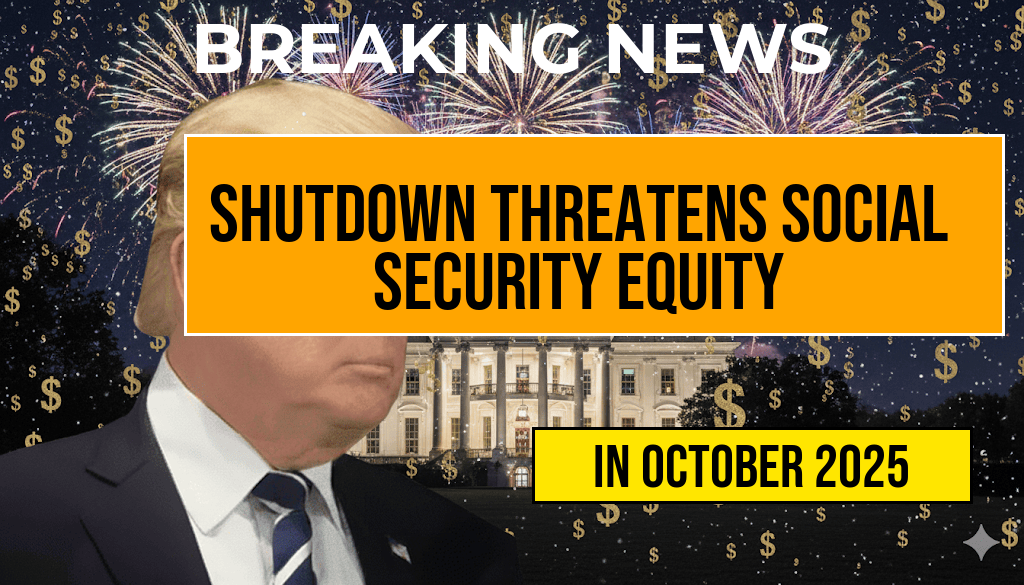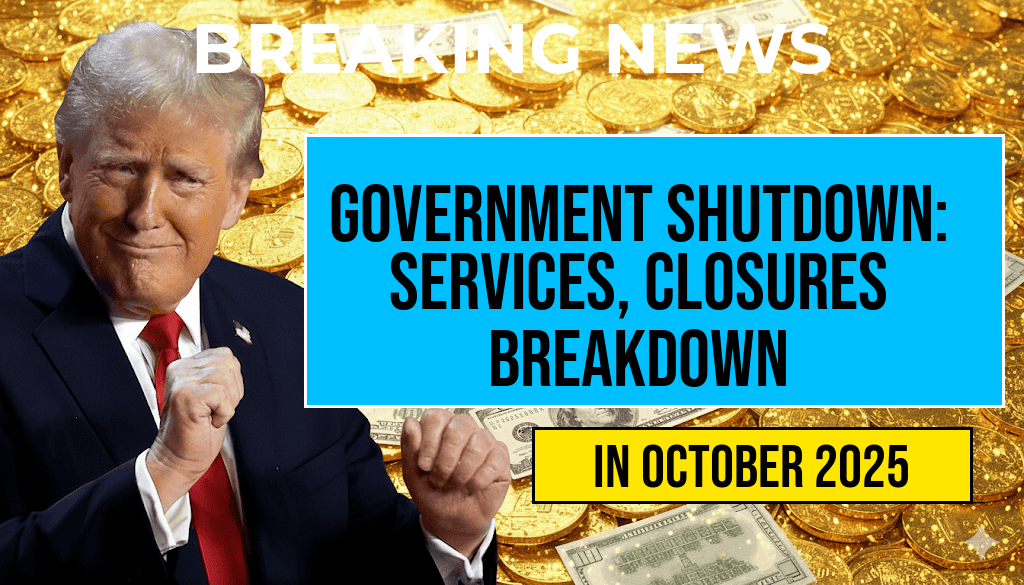The looming threat of a government shutdown risks creating a two-tiered system for Social Security recipients, potentially leaving new applicants in limbo while current beneficiaries continue to receive their payments without interruption. As congressional negotiations falter over budget agreements, concerns grow that a shutdown could freeze processing of new claims, delaying benefits for thousands of seniors and disabled individuals who rely heavily on timely payments. This divide could deepen the financial uncertainty faced by vulnerable populations, raising questions about the stability and fairness of the social safety net during government funding crises.
Potential Disruption in Social Security Processing
Under current policies, Social Security benefits for existing beneficiaries are generally protected during a government shutdown. However, the processing of new claims—including retirement, disability, and survivor benefits—may grind to a halt if federal agencies are forced to suspend operations. The Social Security Administration (SSA) typically maintains benefit payments for current recipients through automatic processes, but the intake and review of new applications depend on ongoing staffing and administrative functions.
Without congressional funding, SSA offices could face staffing shortages, resulting in delays for individuals applying for benefits for the first time. This situation creates a clear two-tier system: those already receiving Social Security payments remain unaffected, while new applicants could face extensive wait times for approval, sometimes spanning several months.
Impact on New Applicants and the Broader Social Safety Net
For Americans approaching retirement age or dealing with disabilities, the inability to access benefits promptly can have serious financial repercussions. Many rely on Social Security as their primary income source, and delays could lead to missed bills, increased debt, and heightened economic insecurity.
Data indicates that approximately 60 million Americans currently receive Social Security benefits, with a significant portion relying solely on this income. For new applicants, the process typically involves a thorough review, including medical assessments and verification of employment history. Interruptions in this process could exacerbate existing vulnerabilities among low-income seniors and disabled individuals.
Government Agencies and Administrative Challenges
Operational Impacts of a Shutdown
- Processing delays for new benefit applications
- Suspension of certain outreach and customer service functions
- Potential backlog of claims once agencies resume full operations
The SSA’s contingency plans usually include protecting benefit payments for current beneficiaries, but they do not guarantee the processing of new claims. During previous shutdowns, the agency prioritized ongoing payments but struggled to handle new applications efficiently, leading to increased wait times and applicant frustration.
Legal and Policy Considerations
Legislation often provides some protections for current beneficiaries, but lawmakers have yet to agree on specific measures to shield new applicants from delays. Critics argue that the current framework inadequately safeguards the most vulnerable populations during fiscal impasses, emphasizing the need for policy reforms that ensure equitable access regardless of government funding status.
Potential Solutions and Policy Debates
| Approach | Advantages | Disadvantages |
|---|---|---|
| Full funding of SSA operations regardless of government shutdown | Ensures uninterrupted processing for all applicants | Requires bipartisan agreement on budget measures |
| Prioritize processing for vulnerable populations | Reduces hardship for those most at risk | May still cause delays for other applicants |
| Postpone new claims until full funding resumes | Prevents administrative overload during shutdown | Creates prolonged uncertainty for applicants |
Policy advocates emphasize that ensuring uninterrupted access to Social Security benefits, especially for new applicants, should be a priority, especially in periods of fiscal instability. Some lawmakers propose dedicated funding streams or emergency measures to protect the processing of new claims during government shutdowns, citing the importance of social safety nets for economic stability.
Expert Perspectives and Public Concerns
Experts warn that the division created by a shutdown could undermine confidence in the social safety net. Dr. Laura Stevens, a social policy analyst at the Urban Institute, notes, “The risk of a two-tiered system reflects broader systemic vulnerabilities. It’s essential that policymakers recognize the human impact of delays, especially as the aging population grows and more Americans depend on Social Security for their livelihood.“
For many, the prospect of delayed benefits compounds existing financial pressures. Advocacy groups are urging Congress to pass emergency funding measures and ensure that the processing of new Social Security claims continues without interruption, even amid ongoing budget negotiations.
Looking Ahead
The outcome of upcoming budget negotiations remains uncertain, but the potential fallout from a government shutdown underscores the need for comprehensive policy solutions. As the debate continues, millions of Americans await clarity on whether they will face delays or continue to receive their benefits seamlessly. Ensuring equitable access to Social Security during fiscal crises is increasingly viewed as a critical component of safeguarding the social safety net for all.
For further information on Social Security and government funding policies, consult resources such as Wikipedia’s overview of Social Security and official updates from the Social Security Administration.
Frequently Asked Questions
What is the potential impact of a government shutdown on existing Social Security beneficiaries?
During a government shutdown, existing Social Security beneficiaries are typically protected and continue to receive their benefits without interruption, ensuring their financial stability remains intact.
How could a government shutdown affect new Social Security applicants?
New Social Security applicants may face complete delays in processing their applications and receiving benefits, as the administrative functions could be temporarily halted.
Why does a government shutdown create a two-tier system for Social Security recipients?
The two-tier system arises because existing beneficiaries are prioritized and protected, while new applicants experience delays, leading to unequal access based on application timing.
What steps can Social Security recipients take to prepare for a potential shutdown?
Recipients should ensure their benefits are up to date, consider exploring alternative financial plans, and stay informed through official Social Security updates to minimize disruptions.
Is there any way to avoid delays in benefit payments during a government shutdown?
While benefits for existing beneficiaries are usually protected, new applicants may experience delays; staying in touch with Social Security offices and applying early can help mitigate some impacts.





